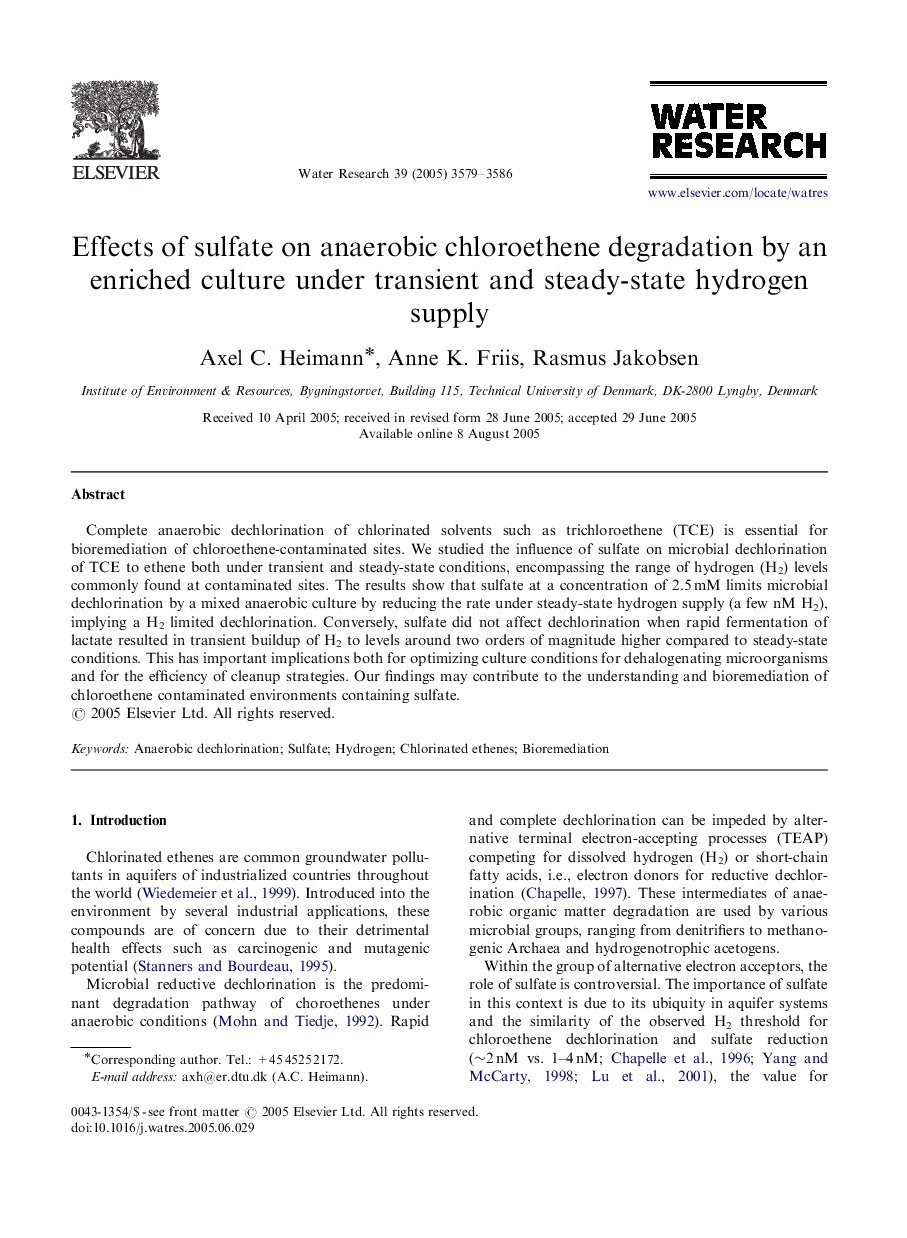| Article ID | Journal | Published Year | Pages | File Type |
|---|---|---|---|---|
| 4485180 | Water Research | 2005 | 8 Pages |
Complete anaerobic dechlorination of chlorinated solvents such as trichloroethene (TCE) is essential for bioremediation of chloroethene-contaminated sites. We studied the influence of sulfate on microbial dechlorination of TCE to ethene both under transient and steady-state conditions, encompassing the range of hydrogen (H2) levels commonly found at contaminated sites. The results show that sulfate at a concentration of 2.5 mM limits microbial dechlorination by a mixed anaerobic culture by reducing the rate under steady-state hydrogen supply (a few nM H2), implying a H2 limited dechlorination. Conversely, sulfate did not affect dechlorination when rapid fermentation of lactate resulted in transient buildup of H2 to levels around two orders of magnitude higher compared to steady-state conditions. This has important implications both for optimizing culture conditions for dehalogenating microorganisms and for the efficiency of cleanup strategies. Our findings may contribute to the understanding and bioremediation of chloroethene contaminated environments containing sulfate.
